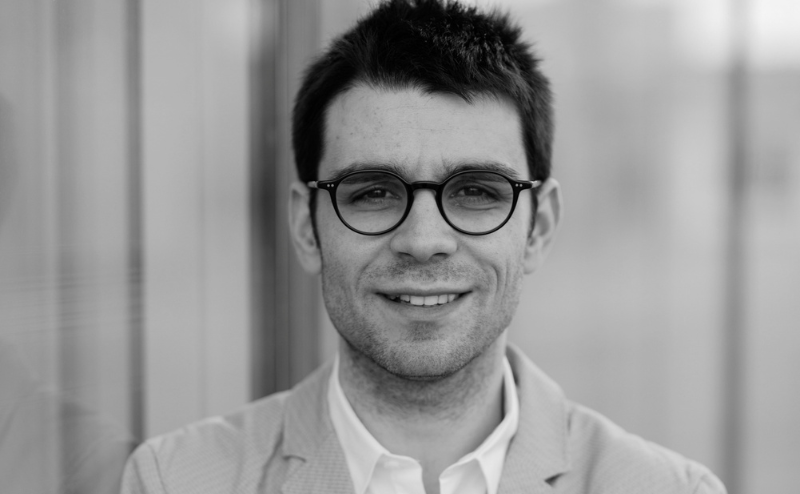News

Denis Pellicer (SKEMA 2012), Tax Director in Tax Technology & Accounting, Siemens Energy
"Taking advantage of professional opportunities but remaining loyal to your company": Denis Pellicer, SKEMA 2012, looks back on his career in finance.
Could you tell us about your career path, from your graduation from SKEMA to your current position as Tax Director in Tax Technology & Accounting at Siemens?
I began my professional career at McDonald's and Quick, where I learned the basics of taxation.
I then had the opportunity to join the SNCF Group, where I worked on strategic issues for the company, such as the transition from a cooperative rail system to a single "THALYS" rail company model.
I then joined the EDF Group's Nuclear and Thermal Division, working on the fiscal impact of the closure of thermal power plants in France and the international development of nuclear-related activities.
The company offered me the chance for an external secondment with Technicolor, where I acquired additional skills in customs and Tax Technology by working on dematerialisation projects.
I am currently Tax Director at Siemens Energy, a group I joined in 2020 to create a new position.
What inspired you to specialise in taxation and Tax Technology? How did you identify this career opportunity?
With my heart and mind! SKEMA's courses in business law, and tax law in particular, were of particular interest to me. This career choice also enabled me to put into practice both the finance and management skills I had developed in SKEMA's Grande École programme, and the legal and tax skills I had developed as part of a double degree in business law, followed by a Master's degree specialising in taxation. My interest in Tax Technology was stimulated by the increasing complexity of regulations and the potential of technology to simplify them. I saw this as a career opportunity when I observed the rapid evolution of the sector and recognised the growing demand for experts able to combine tax and technology for innovative solutions.
You did a double degree in business law, followed by a master's specialising in taxation, in parallel with the PGE. Why did you make this choice and how did it help you?
I was keen to do a double degree in business law and taxation because I wanted to understand the legal and fiscal aspects of business and, above all, to understand how a legal career could help create added value within a company. The versatility I developed in business school is totally suited to the job of a corporate tax specialist. Tax specialists manage the company's risks and have a cross-functional vision of the issues involved.
What are the main responsibilities of your current role as Tax Director?
The role of the Tax Manager is often perceived as being primarily focused on tax optimisation, i.e. finding legal ways to minimise a company's tax burden. However, it's important to understand that the actual situation is very different. An important part of our responsibility is to secure our tax position. Tax security is crucial to avoiding costly tax disputes, and ultimately contributes to a company's financial stability.
Against a backdrop of rapid transformation and numerous reforms, my role as Tax Director is to support these changes to ensure that the Group can continue to comply with increasingly complex tax rules.
You recently wrote an article on the links between tax law and internal auditing within companies. Can you tell us more?
When I was talking to another SKEMA graduate who works in internal auditing, we looked at how our two very different professions could be linked. And I thought it was an interesting idea to see how two jobs which, at first glance, have nothing to do with each other, could have similarities and probably be viewed askance within the company, since internal audits ensure compliance with the company's internal procedures, while the tax department ensures compliance with tax legislation. Yet both departments can add value to the company in their own way, and end up being appreciated within the organisation.
To read this article: click here.
What skills and knowledge are essential for success in this business?
Skills are wide-ranging. Tax specialists are real "Swiss Army knives", as they need to have both legal and financial skills. Tax specialists have to decipher international contracts, and at the same time prepare financial statements, while mastering not only tax legislation but also French and international IFRS accounting standards. You need to juggle different subjects, which requires a certain responsiveness. The educational and pragmatic aspects are also important, as you need to make the subject matter accessible.
Have you encountered any major challenges in your career and how did you overcome them?
One of my main challenges was to set up the tax department within Siemens Energy in a context involving a major transformation of the Group and numerous tax reforms. We had to move fast on complex issues, which required major investment. One way of overcoming such challenges is to have a clear vision of the objective. As all the company's subjects are interconnected, the processes introduced help to structure the company better, which in turn makes it easier to manage well. It's difficult at first, but then you get into a virtuous circle.
What are the most rewarding aspects of your job?
What makes my job particularly rewarding is the fact that I'm constantly called upon to tackle a variety of complex and interconnected topics within the company, and to collaborate with different teams to achieve our common goals. To be considered useful on a wide range of subjects illustrates an ability to add value to the company. The tax department lies at the crossroads of several areas, and can thus provide help and support to various departments within the company. And that's what makes every working day a rewarding experience.
How have you maintained your professional network and relationships with the alumni community since graduating, and how has it benefited your career?
First of all, relationships with the SKEMA alumni community are maintained through the friendships developed within the school. The years spent in business school provide marvellous experience and create strong bonds.
After that there are various opportunities to maintain links with the school, like attending conferences and after-work events staged by SKEMA Alumni, or taking part in the orals of the PGE competitive entrance exam. I'm always curious to see how the aspirations of new students evolve, as well as the career paths of those who have left the school.
More recently, I mentored a student who wasn't working in tax at all, but wanted to work in the energy sector and chose me because of my background with EDF and Siemens Energy.
Are there any resources, books, websites or training courses that you would recommend to students to develop their knowledge in this sector?
In taxation, a book that helped me a lot at the start of my career was the "Red Book" "Fiscalité approfondie des sociétés" (In-depth Corporate Taxation), because it covers all areas, while being accessible, concise and, above all, full of concrete examples that help you to really understand the subjects. Professional social networks are also excellent for keeping up with current events in a fun way.
Do you have any watchwords for current students who want a career similar to yours?
Curiosity! It's really vital to develop your skills and keep abreast of professional opportunities.
Adaptability, which is not necessarily specific to taxation but to all professions in a context of change.
Pragmatism, especially in the legal profession, because good advice is advice that can be put into practice.
Loyalty, because the professional world is a small one. You have to be able to seize professional opportunities while ensuring that you carry out the tasks the company took you on for.
Contact: Denis Pellicer, Tax Director in Tax Technology & Accounting, Siemens Energy




